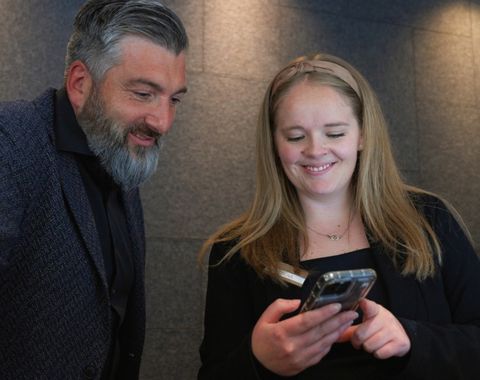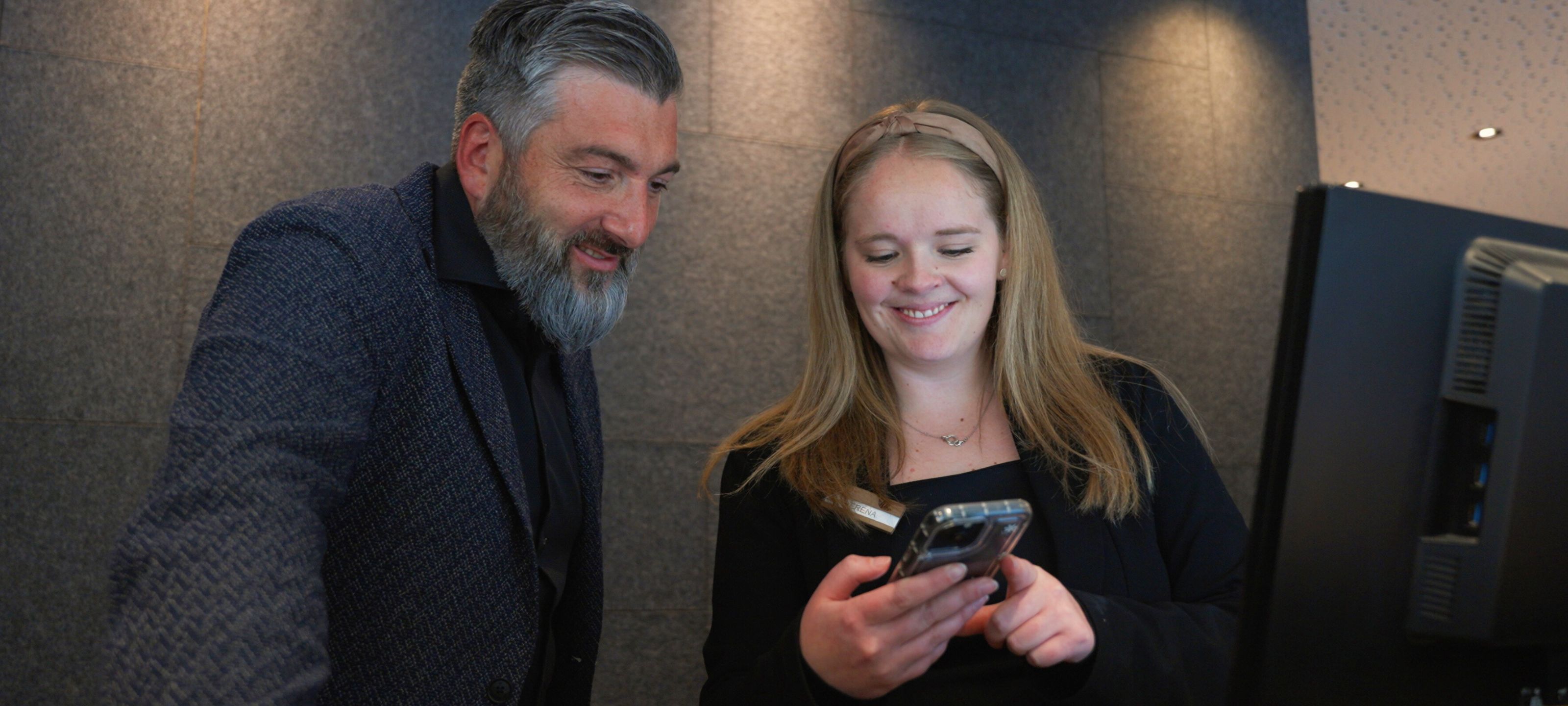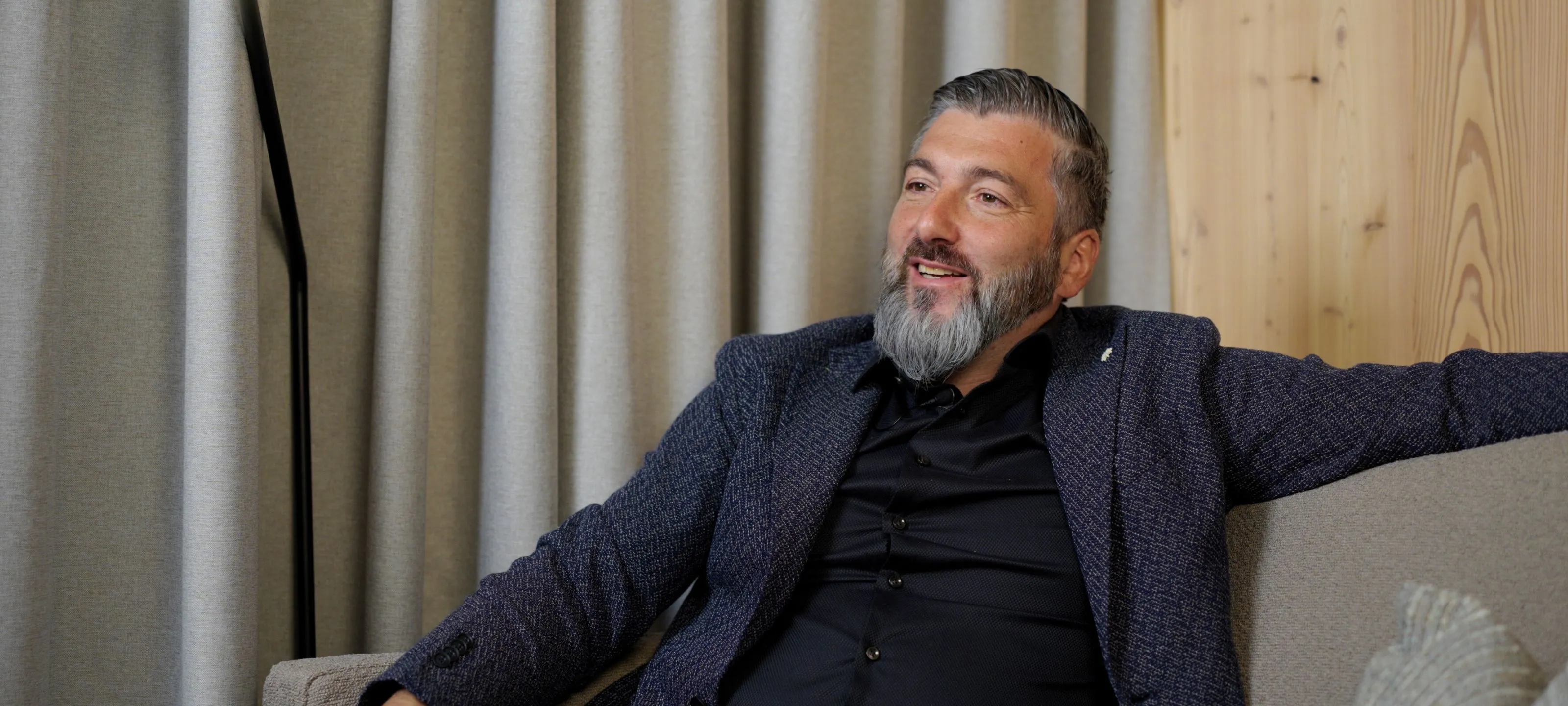
In Conversation with Carsten Seubert, Hotel Adlon Kempinski Berlin - Part 1

Carsten Seubert offers exclusive insights into the renowned Hotel Adlon Kempinski Berlin. Discover how the luxury hotel combines tradition and innovation, and the role online marketing plays in its success.
<div class="article_quote"><div class="article_quote_contain"><div class="article_quote_quote">"The need for human interaction is on the rise due to the increasing digitalization of a large part of the guest base."</div><div class="article_quote_name u-text-style-main">Carsten Seubert</div></div></div>
In the international luxury hotel industry, Carsten Seubert has had an impressive career. He has been with the Kempinski Group since 2006, starting in Munich and moving on to London, China, Bulgaria and Vienna before coming to the German capital. In October 2017, he took on the role of Hotel Manager at the renowned Hotel Adlon Kempinski Berlin, where he has since been responsible for all operational and business processes as well as the management of 420 employees.
The History of Hotel Adlon Kempinski
<h3 class="interview-question">What makes the Hotel Adlon Kempinski Berlin unique?</h3>
The uniqueness is mainly due to the history of the hotel. In 1907, the Adlon was opened as an international luxury hotel with the strong support of Kaiser Wilhelm. The claim was to be the best hotel in the world. It lived up to this claim thanks to technical innovations such as running hot water in all rooms, which was by no means a matter of course at the time. When the hotel reopened in 1997 under the management of Kempinski, it still aspired to world-class standards. The Adlon was then as much about quality as it is today.
<h3 class="interview-question">Can you give us a brief insight into the long history of one of Europe's most famous hotels?</h3>
Since its opening in 1907, the hotel has been a meeting place for state guests, the crème de la crème of society, Kaiser Wilhelm himself and the stars and starlets of the day. The building survived both world wars, but burned to the ground shortly after World War II due to a fire in the basement. Many legends surround the cause. One of the most likely is that Russian soldiers got a bit carried away at a party and cigarettes in the wine cellar set the house on fire. We will never know the truth. Since the building was right next to the Berlin Wall after 1961, it remained unused until it was reopened in 1997 as part of the Kempinski Group.





Cultural Differences in International Business
<h3 class="interview-question">How important is it for the Adlon Berlin in particular to have a large company and a flagship brand like Kempinski behind it? Are there areas or situations where you would like to be more independent?</h3>
Of course you notice that you are part of a parent company, but mainly in a positive way. It gives you completely different distribution capabilities and sales and marketing channels, and you benefit from the brand presence of the group. Especially because Kempinski and the Adlon complement each other in terms of positioning. Kempinski clearly focuses on the 5-star luxury segment and sets the high quality standards. The Adlon can be seen as the spearhead in this respect.At the same time, the Kempinski Group attaches great importance to the individual character of each hotel. This is reflected in the name. After all, the hotel is called "Hotel Adlon Kempinski Berlin" and not "Kempinski Hotel Adlon Berlin". "A collection of individuals" used to be the unofficial slogan of the group, which is the oldest independent luxury hotel chain in Europe. It is one of the few groups that is not part of a mega-brand, those brand associations that dominate the hotel industry. Kempinski thus sees itself as a small, agile fish in a pool of large, somewhat ponderous steamships.
<h3 class="interview-question">You have worked for Kempinski in management positions around the world. Have the day-to-day challenges been similar in different countries or have there been major differences?</h3>
The core business and the essence of my work is very similar: dealing with people, be they employees or guests. Culturally, however, there are very big differences. Whether it's London or Beijing, Bulgaria or Berlin, the basic conditions alone, such as the way of life of the employees and the country-specific customs, are completely different. This changes the approach to daily activities.
For example, I have found that in China you have to communicate more precisely and leave less room for interpretation to avoid misunderstandings. Culturally, people are very good at following instructions to the letter. The fact that waiters at a newly opened buffet restaurant serving Western food did not remove used knives and forks, but placed them precisely on the place mat, is only understandable if you know that they have transferred the habit of using one set of chopsticks for an entire multi-course meal to Western cutlery. This understanding and sensitivity needs to be developed.
<h3 class="interview-question">We look to China a lot now. Is it the other way around?</h3>
I have noticed that people in China - whether in the countryside or in the capital - are very curious and inquisitive about Europe. At the same time, they are well aware that they have a lot of knowledge, quality and expertise in their own country, especially in the area of digitalization. I have definitely not noticed any isolation, but rather a willingness to develop-
<div class="article_quote"><div class="article_quote_contain"><div class="article_quote_quote">"For me, the biggest difference between digital and analog is the direct contact with the guest, and we place a lot of value on that here."</div><div class="article_quote_name u-text-style-main">Carsten Seubert</div></div></div>
The Value of Personal Service
<h3 class="interview-question">Speaking of digitization, maybe I have the wrong idea or expectation, but if I were a guest at the Adlon, I would want analog service.</h3>
That is indeed the case for the most part. Of course, a certain technological standard has long been part of a hotel's equipment, just like running water. For me, the biggest difference between digital and analog is the direct contact with the guest, and we place a lot of value on that here. As you said, this is what the guest expects, and this is the reason why you pay more here than in many other hotels, because the analog service exists and is authentic and of a very high standard.
<div class="article_quote"><div class="article_quote_contain"><div class="article_quote_quote">"The more we know about our guests, the better we can provide proactive recommendations. This already starts with the booking period, from which we can infer potential interests and needs. Digitalization is, of course, indispensable for this."</div><div class="article_quote_name u-text-style-main">Carsten Seubert</div></div></div>
<h3 class="interview-question">In the background, however, digitalization probably has a strong influence. For example, if I were your guest for three days at the ITB tourism trade show, what would you know about me?</h3>
Provided you gave your permission under the German Data Privacy Law, we collect all data about our guests under the heading Guest Intelligence - from the room they booked to their special requests. Whether you prefer red or white wine, whether you ordered special pillows or when your birthday is. We send our guests a pre-arrival email to ask about certain things to personalize their stay and make it even more enjoyable.
We make proactive recommendations, the better the more we know about the guest. This starts with the booking period, which allows us to draw conclusions about possible interests and needs. Of course, digitization is inevitable.
<div class="article_quote"><div class="article_quote_contain"><div class="article_quote_quote">"To put it bluntly: our target audience will certainly not shrink despite digitalization. In the long run, the opposite is more likely to be true."</div><div class="article_quote_name u-text-style-main">Carsten Seubert</div></div></div>
<h3 class="interview-question">Doesn't the digitalization of all areas of our lives benefit the Adlon because it preserves the personal touch and thus sets itself apart from other hotels?</h3>
Absolutely. I think - and this is a bit schizophrenic, because I'm a big fan of digitalization wherever personal contact is not necessary or desired - that the need for human interaction will increase for a large proportion of people as a result of increasing digitalization. There are certainly people who seek anonymity, but for many, and this is definitely our market, we offer personal contact. To put it in a nutshell: Despite digitalization, our target group is certainly not getting smaller. In the long term, the opposite is more likely to be the case.
In part 2 of the interview with Carsten Seubert: Insights into the marketing and PR work of the Hotel Adlon Kempinski Berlin. The final questions provide an outlook on the future of the (luxury) hotel industry and reveal the personal thoughts and opinions of the well-traveled hotel manager.







.jpg)

.jpg)



.webp)
